Waking up to notice a weird and unusual sound while brushing your teeth can be very disturbing.
But I must tell you, it’s not an odd experience. It’s your teeth’s little way of convening a message, one which will be intensely discussed in the course of this article.
Many actions can lead to this, be it intensive and thorough brushing, special cleaning using dental tools, or just anything that can foster this experience.
This article features quite a several related topics, queries, and speculations, surrounding the teeth.
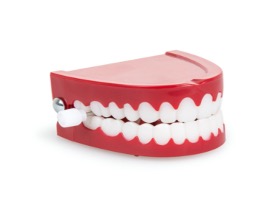
Why your teeth squeak when you rub them
The question of why the teeth squeak has no direct answer. But some certain actions or inactions can lead to this occurrence, which may appear unpleasant to some people.
You can direct the question to your doctor, and hope to get an answer but this section offers you a clear understanding of what can lead to this happening.
The squeaking of teeth can be tied to a clean surface or enamel. It can be likened to rubbing a wet palm over a ceramic material, the sound produced is squeaking.
In the same vein, clean and brushed enamel can result in a squeaking sound when rubbed or brushed.
However, the type of teeth cleaning that can produce this result is not only brushing, but it also involves a special cleaning tool called ‘Floss’ and a method known as ‘Flossing’.
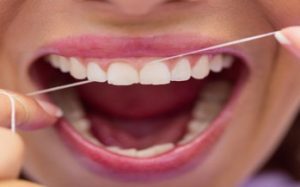
The floss is a thin filament used in the removal of food or dental plaque. The process entails removing dental plaques, both in the front and the back of the tooth.
It also extends to removing plaques found in-between the tooth. When this is done repeatedly, it can result in the squeaking sound in the teeth.
Why Do My Teeth Squeak When I Bite Them?
Oftentimes, when you bite down, you notice an unusual feeling. The sensation you perceive doesn’t seem right, but you ignore it anyway.
You fail to report to a dentist or better still, seek information on why something of that nature happened.
It might not sound serious, but if your teeth squeak whenever you bite down then there is a problem.
Although it is not something to get alarmed at, it’s neither one to ignore.
The cause of this can be ascribed to a certain disorder known as Temporomandibular Disorder [TMD], an illness that affects the joints surrounding your jaw.
Now, this disorder may not cause the squeaking of your teeth when you bite down in its entirety, it contributes to it.
When you take an improper bite, say when munching your chocolate bar, you can experience the squeaking of your teeth.
When this improper chewing pattern persists, it can lead to TMD and eventually squeaks whenever you bite down.
Should Your Teeth Squeak When Rubbed?
Well, I guess you have asked yourself this question a couple of times if not multiple. It’s not as absurd as you think, but there are two approaches to this.
First, there is a ‘Yes’ answer, if at all it is cleaned exceptionally. The process involves the same process as the earlier stated method, Flossing.
You might be wondering, what about brushing the teeth, isn’t it also going to cause this?
But the fact remains that brushing only removes dental plagues that are in the front and back sides of the tooth, while flossing takes out the plaques hidden between and underneath the gums.
So, I guess, your teeth should squeak when rubbed if you use this cleaning method.
On the other hand, there is the ‘No’ answer, which implies that your teeth shouldn’t squeak when rubbed.
It’s not a necessary experience and it may not happen to you if you’re not imploring the use of floss in cleaning your teeth.
Signs That Your Kids Aren’t Brushing Their Teeth
The thought of a little kid not brushing is a big challenge and an unpleasant experience for any parent.
As unbelievable as it sounds, some children end up not brushing their teeth when you give them their toothbrush, with the paste crested on top.
While some just lick up the paste and rinse it up, others do a bad job of brushing their teeth.
Here are ways and practical signs which you as a parent, guardian, or elder can implore, to know if your kids are not brushing their teeth.

- Remnant of food particles, after brushing.
- Having smelly breath.
- White tongue.
- Failure in the squeaky test.
- Discovering a dry toothbrush.
- Development of cavities.
Remnant of Food Particles
Whenever you inspect your child after he or she brushes, and find remnants of food particles between their teeth. It can mean that they did not do a good job while brushing their teeth.
It can also mean that they did not even brush at all. Be it legumes, cereals, or just pasta, once you find any of them on or between your kid’s teeth, then you should start reiterating the essence of brushing them.
Having Smelly Breath
Do you perceive an awkward scent or smell whenever you come close to your kid’s mouth region? Is it more persistent than normal?
If you encounter these scenarios, then you might want to do a quick detour in the dental hygiene of your child.
Having a bad breath is proof that there’s a possibility that your kid is not brushing their teeth.
You should try to do a total dental hygiene overhaul if you notice this from your kid.
Because if it’s left unchecked, it might graduate to something even more serious. Bad breath is very wrong in a child, make sure your kid doesn’t get one.
Having White Tongue
White tongue is an oral-related medical condition, which appears as a white sticky, swelled, and patched coating on the tongue.
The causes of this condition may vary, from the accumulation of dead debris in form of sugar or food particles to unhealthy dental hygiene.
Therefore, if you notice any form of white sticky and swelled-up liquid on your kid’s tongue, it can mean that the child has not been brushing his or her teeth.
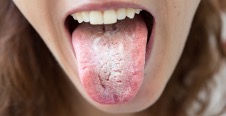
Moving on, there is also a possibility that the kid has been brushing the enamels, but does not know how to properly clean their tongue.
These can also cause this problem, therefore educating them on the proper way to clean their tongue will help remedy this situation.
Failure in the Squeaky Test
The squeaky test is still effective, it is not an outdated practice as thought by many. Using this test on your child, can help you determine if your kid is brushing their teeth or not.
The test entails rubbing the fingers on the teeth, with the expectation to hear a squeaky sound.
But on the contrary, if your child fails to produce a squeaky test when he or she does this, then the child is likely guilty of not brushing their teeth.
Discovering a Dry Toothbrush
Do you know walking up into the bathroom, to discover your child’s dry toothbrush can mean something very bad?
Well, it can either mean it hasn’t been used recently or it means it’s not being used at all.
Either way, it sums up to mean that your kid has not been brushing their teeth.
Once you walk up to the occurrence frequency, then you should start drafting ways to bring that kid back to brushing.
Development of Cavities
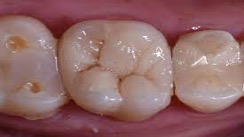
Tiny holes or openings on your kid’s enamel can also mean that he or she has not been brushing.
Cavities are caused by a mix of bacteria, plaques, or food remnants, which have been accumulated for a long period in the mouth.
Tooth decay which is another name for cavities happens due to improper dental health practices.
If your child has this, it’s just a sign that he’s not brushing and also means you have only been giving him or her dental paste to lick up.
How to Tell if You Grind Your Teeth
Some of us are not familiar with the term ‘Bruxism’, but it’s the medical term used to describe teeth grinding.
Teeth grinding is not a worrisome illness, but it can be bad if consistent.
Teeth grinding involves the impulsive gnashing or clenching of the teeth, during the waking state and especially during sleep hours.
The causes of the condition may include stress, situational anxiety, abnormal jaw alignment, or even drug abuse.
Most people do not know they actually grind their teeth, so they do not know whether to say yes or no if the question is thrown at them.
However, some ways or signs can show you if you grind your teeth while asleep or not.
The feeling of slight headache in the early hours of the day and having tight jaws after sleep, are indicative signs that you grind your teeth.
Similarly, you might be grinding your teeth if your sleep is often disrupted or you experience tooth pain.
Other signs include having flattened teeth, making loud noises while asleep, and face soreness.
What Are the Effects of Grinding Your Teeth?
Bruxism or teeth grinding has its effects and they are not pleasant. While some can be resolved easily, others may require you to go see a doctor.
A persistent occurrence of bruxism in an individual can lead to the following worrisome side effects.
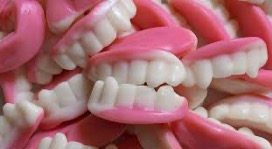
Pain
The pressure induced on the jaws during teeth grinding can result in pain in both the lower and the upper cavity.
This pain may be concentrated on the jaw or face or can be experienced in the form of earaches.
TMD (Temporomandibular Disorders)
Teeth grinding can give rise to this disorder, which affects the areas of the jaw, lower mandible, and face.
The disorder is a product of plaque accumulation, and if the patient has bruxism too, it will contribute greatly to the outbreak of this disorder.
The disorder can in turn cause jaw soreness, pain across the face or neck, and earaches, which are similar to the effects of teeth grinding.
Headache
Teeth grinding can cause intense headaches and all manner of mental unrest. The migraines are caused by constant pressure on the jaw, face, and chin.
Although, they can be relieved easily using pain killers, if the grinding persists, the headaches may become frequent and quite disturbing.
Tooth Fracture
Tooth damages like reduced height, increased sensitivity, fracture, and enamel wear out are top effects of Bruxism or simply Teeth Grinding.
It can equally disrupt the shape of the teeth, leading to a bad representation of the facial outlook.
There can also be damage to the fillings, bridges, and crowns of the teeth, due to constant pressure from teeth grinding. It can lead to a chip, crack or permanent disfigure of the enamel.
Gum Recession
Even though the causes of receding gums are often tied to bacteria, infections, and others, it will also interest you to know that teeth grinding can also cause it.
Gum recession is a form of periodontal disease which affects the gum and makes them weak.
This leads to pockets and spaces between the gums, giving bacteria a space to build up. Gum recession can lead to tooth loss, if not treated.
